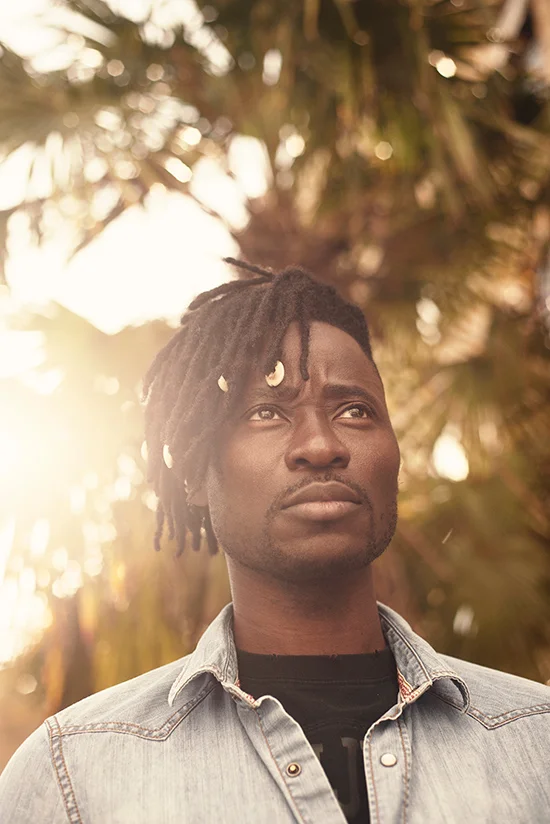Bisi Alimi Broke Barriers To Become The Voice Of The Unheard.
Photography: Kim Lang
Words: Stephanie Dando
Bisi Alimi probably carries more courage in his pinkie fingernail than most of us do in our entire bodies. In 2004, Alimi made headlines both locally and abroad when he became the first Nigerian to openly come out on national television. While for Western nations, perceptions of non-heteronormative sexualities and LGBT folk have become more and more accepted to the point of near normalcy, in Nigeria, where Alimi is from, those who identify as LGBT can enjoy no such liberties. Same-sex activities are illegal. Alimi’s highly public move was a bold one, and one that did not pass without consequence.
Since coming out, Bisi, born Ademola Alimi, has been a prolific activist. While waiting for his asylum seeker status to be approved, Alimi worked with the Naz project, a foundation designed to help black Africans who are diagnosed with HIV. As well as being the co-founder of the Kaleidoscope Trust, which fights for the human rights of LGBT folk internationally, Alimi also launched his ‘legacy project’, the Bisi Alimi Foundation, which aims to influence policy change for the benefit of lesbian, gay, and bisexual people in Nigeria.
But while on the surface, Alimi has given all of himself to those issues closest to his heart and identity, being both black and gay is a complicated existence. On the subject of blackness, Alimi said that it was only when he moved to the UK that he became black. “I was never black in Nigeria,” Alimi shared. “We don’t really consider ourselves as black [in Nigeria], we consider ourselves as Nigerian…it was a struggle for me to be black because then I had to understand what it means…to face prejudice and racism, what it means to question yourself and have no self-esteem.” Alimi goes on to say that an understanding of blackness needs to be disengaged from the individual, “[it’s] a collective thing about people who look like you from people who don’t look like you.”
Alimi maintains that before he came out as gay on live TV, the president of Nigeria claimed that there were no gays in the country. “And this crazy boy went on TV with his sparkle shoes and said ‘Ah, excuse me! There’s one here!” He told indy100 that he felt his coming out as gay on ‘New Dawn’ in 2004 was the reason for the introduction of the country’s anti-gay bill. Nigeria’s Same-Sex Prohibition Act (SSMPA) bans gay marriage same-sex relationships, and membership to gay rights groups – with penalties of up to 14 years in prison. In those northern states which practice Shari’a law, those proven to have engaged in homosexual activity receive the death penalty.
Perhaps surprisingly, Alimi maintains that being gay in Nigeria is a much more exciting affair than being gay in the UK. “The fear and the anxiety that comes from being gay in Nigeria is much more fun than the boredom that comes from being gay in London… it’s cool to be gay here and you can do whatever you want, but in Nigeria you kiss and [you’re] watching if someone is watching your back.” Despite Alimi’s ebullient handling of the taboo topic, in 2007 a gang of men broke into the home he co-habited with his boyfriend, tied them up, and tortured them. The assault was the reason for Alimi’s fleeing from Nigeria to the UK, where he would begin his prolific activist career. Despite the indisputable courageousness shown by Alimi, this is perhaps the most precious thing about him; he is, through it all, irrepressibly light-hearted.
Words: Stephanie Dando
Photography: Kim Lang









